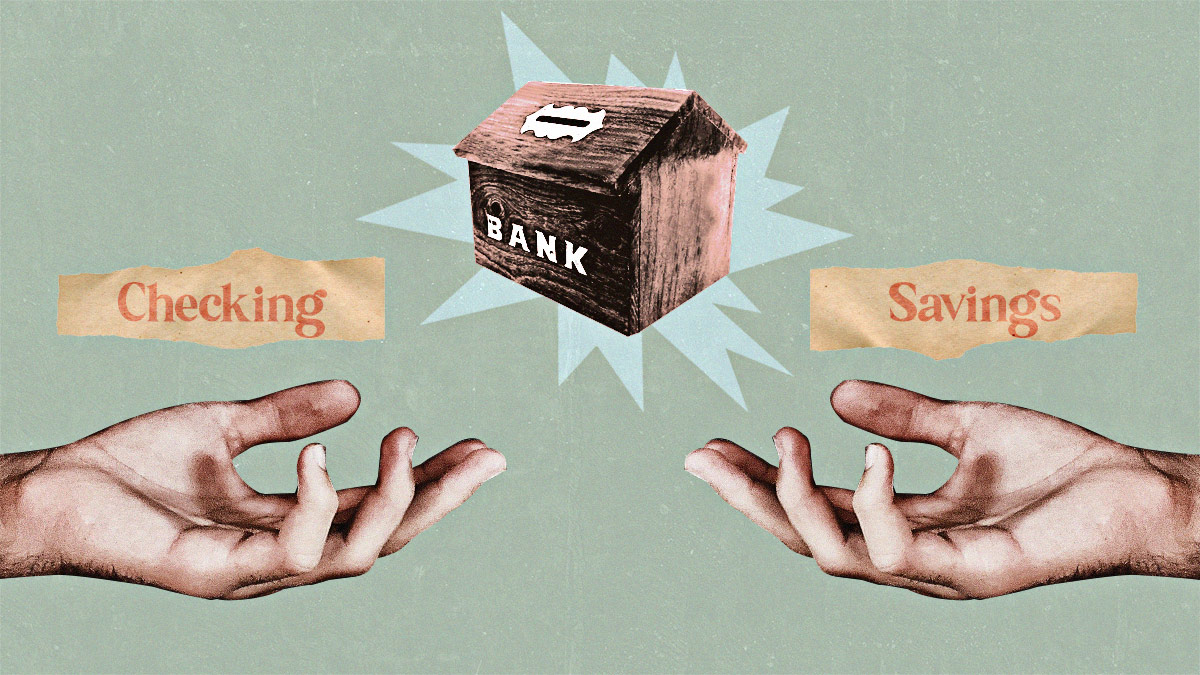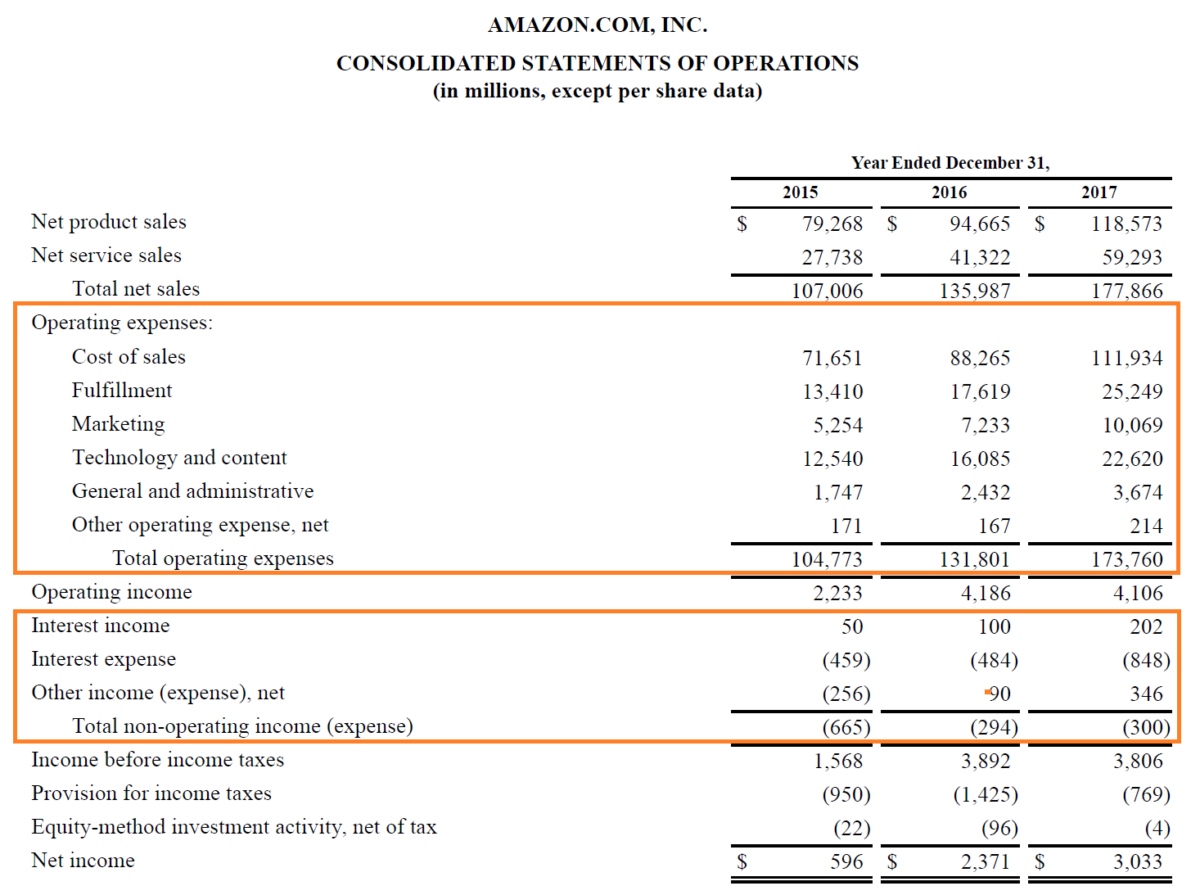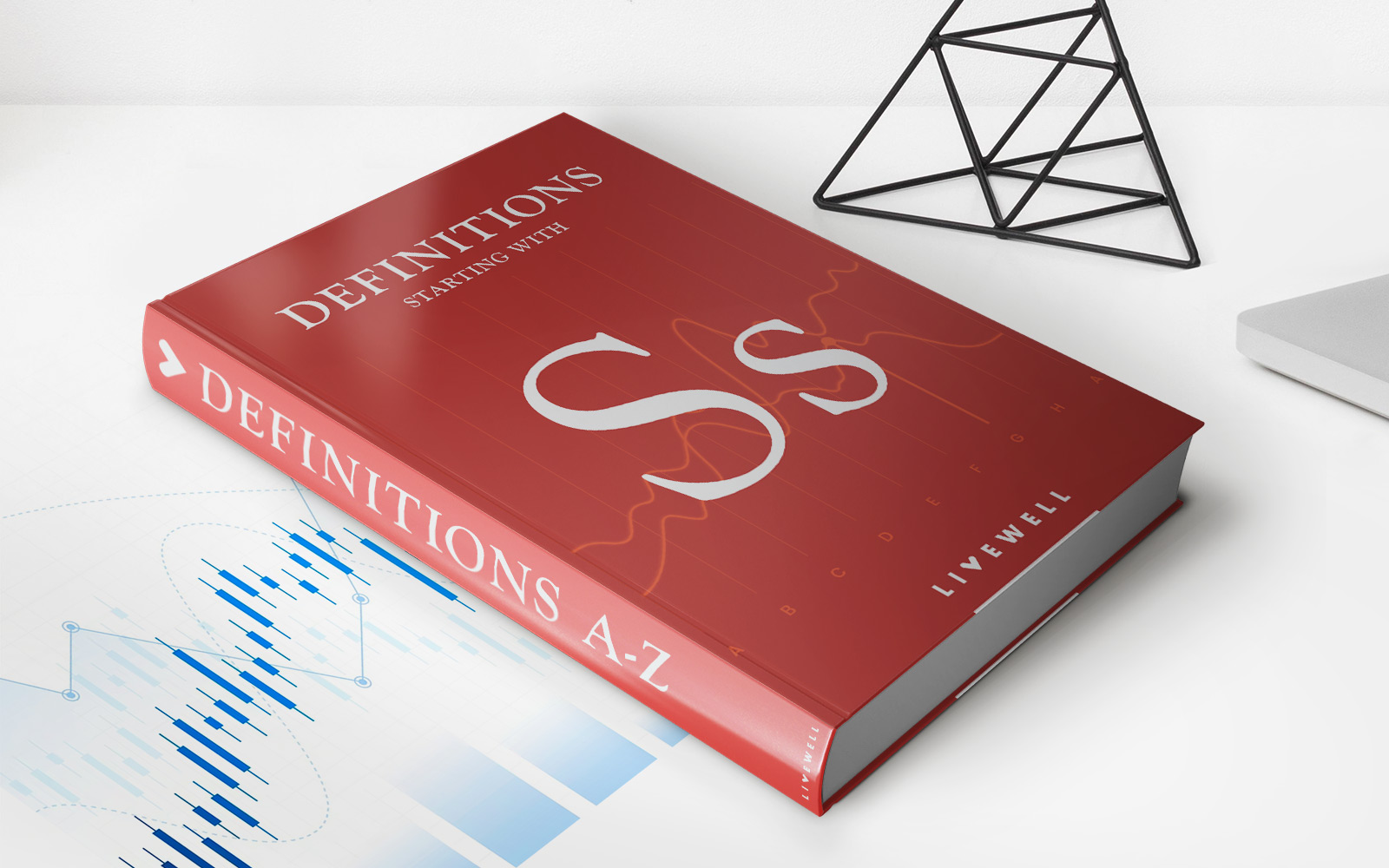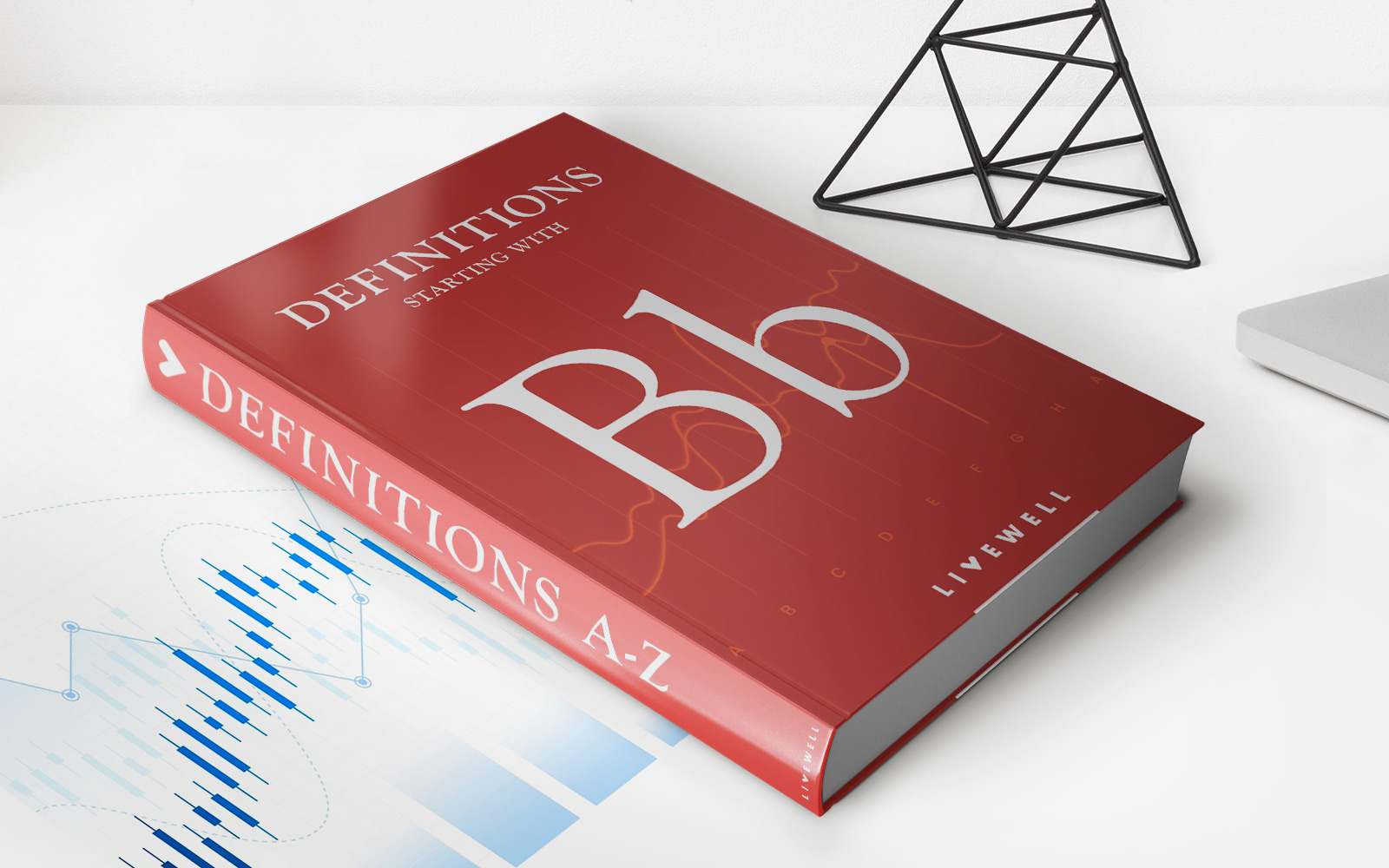Home>Finance>Why Are Tracking Your Expenses And Balancing Your Checking Account Important
Finance
Why Are Tracking Your Expenses And Balancing Your Checking Account Important
Modified: February 21, 2024
Discover the importance of tracking your expenses and balancing your checking account in maintaining financial stability. Learn essential finance tips with our comprehensive guide.
(Many of the links in this article redirect to a specific reviewed product. Your purchase of these products through affiliate links helps to generate commission for LiveWell, at no extra cost. Learn more)
Table of Contents
Introduction
Managing your personal finances effectively requires a disciplined approach to tracking your expenses and balancing your checking account. While it may seem tedious or time-consuming, these practices are instrumental in achieving financial stability and making informed financial decisions. By keeping a close eye on your expenses and ensuring your checking account is in order, you can gain control over your money, avoid unnecessary debt, and plan for the future.
In this article, we will explore the importance of tracking your expenses and balancing your checking account. We will discuss how these practices contribute to your overall financial well-being and outline the steps you can take to implement these practices successfully.
Tracking Your Expenses:
Tracking your expenses is the process of recording and categorizing your spending habits. This encompasses every transaction, from small daily purchases to significant monthly expenses. By diligently tracking your expenses, you gain a clear understanding of where your money is going and can identify areas for improvement.
Tracking Your Expenses
Tracking your expenses is an essential financial practice that provides valuable insights into your spending habits. It involves keeping a detailed record of all your expenditures, including both essential and discretionary expenses. This process allows you to analyze your financial patterns and make informed decisions about how to allocate your money.
There are several methods you can utilize to track your expenses effectively:
- Maintain a budget: Creating a monthly budget helps you set spending limits for different categories, such as groceries, transportation, and entertainment. By adhering to your budget and tracking your expenses against it, you gain a better understanding of your financial priorities.
- Keep receipts: Make it a habit to collect receipts for all your purchases. This can be done physically by organizing them in a designated folder or digitally by scanning or taking photos of them. Having a visual record of your expenses makes it easier to categorize and track them later.
- Use expense tracking apps: Take advantage of technology by utilizing expense tracking apps. These apps automatically categorize your expenses based on your spending patterns, saving you time and effort. Some popular options include Mint, PocketGuard, and Expensify.
- Review bank and credit card statements: Regularly go through your bank and credit card statements to ensure all transactions are accounted for. This helps identify any unauthorized charges or discrepancies and allows you to track your spending in real time.
When tracking your expenses, it is crucial to be thorough and consistent. Capture even the smallest expenses, as they can add up over time. Categorize your expenses into broad categories such as housing, transportation, utilities, food, entertainment, and savings. This categorization helps you identify where you are spending the most and where you can potentially cut back.
By tracking your expenses diligently, you gain better control over your finances. You become more aware of your spending habits and can identify areas where you might be overspending. This knowledge allows you to make adjustments and redirect your money towards your financial goals such as saving for a down payment, paying off debt, or investing for the future.
Importance of Tracking Expenses
Tracking your expenses plays a crucial role in managing your personal finances effectively. Let’s explore some of the key reasons why tracking your expenses is important:
1. Financial Awareness: Tracking your expenses provides a clear picture of where your money is going. It eliminates any guesswork and helps you gain a deeper understanding of your spending habits. This awareness enables you to make informed decisions and prioritize your financial goals.
2. Budgeting: By tracking your expenses, you can create a realistic budget that aligns with your income and financial objectives. It allows you to allocate your funds efficiently, ensuring that you have enough money for essential expenses while also saving for the future.
3. Identifying Overspending: Through expense tracking, you can identify areas where you might be overspending. This awareness helps you make adjustments and cut back on unnecessary expenses, allowing you to save more money and avoid falling into debt.
4. Goal Tracking: Tracking your expenses brings you closer to achieving your financial goals. Whether it’s saving for a down payment, paying off debt, or planning for retirement, understanding your spending patterns helps you allocate your resources effectively and stay on track.
5. Making Informed Decisions: When you track your expenses, you have a solid foundation of financial data to rely on when making decisions. Whether it’s evaluating whether to make a major purchase or considering a career change, understanding your financial situation enables you to weigh the pros and cons and make informed choices.
6. Tax Preparation: Accurate expense tracking simplifies the process of preparing your taxes. With well-organized records, you can easily identify deductions and credits, ensuring that you maximize your tax benefits.
Overall, tracking your expenses is crucial for maintaining financial stability and achieving long-term financial goals. It provides you with a comprehensive view of your financial situation, enhances your decision-making abilities, and empowers you to take control of your money.
Benefits of Tracking Expenses
Tracking your expenses offers a multitude of benefits that can positively impact your financial well-being. Let’s explore some of the key advantages:
1. Financial Awareness: When you track your expenses, you gain a sense of control and awareness over your financial situation. You become more conscious of your spending habits and can make adjustments to align them with your financial goals.
2. Budgeting Mastery: By consistently tracking your expenses, you can create a realistic budget and stick to it. This allows you to allocate funds effectively, ensuring that you cover your essential expenses while saving for the future.
3. Debt Prevention: Tracking your expenses helps you identify areas where you might be overspending. This awareness allows you to make conscious decisions and avoid accumulating unnecessary debt. It also enables you to allocate funds towards paying off existing debts.
4. Smart Financial Decision-Making: With a clear understanding of your spending habits, you can make informed financial decisions. Whether it’s evaluating a major purchase, comparing offers, or prioritizing savings and investments, tracking your expenses gives you the necessary data to make smart choices.
5. Financial Goal Achievement: Tracking your expenses brings you closer to achieving your financial goals. By identifying areas where you can cut back and save more, you can allocate those savings towards specific objectives such as buying a house, starting a business, or retiring comfortably.
6. Improved Financial Relationships: When you track your expenses, you gain better control over your finances, which can lead to improved relationships with financial institutions, landlords, and vendors. It demonstrates your financial responsibility and can lead to better interest rates, lower fees, and improved creditworthiness.
7. Reduced Financial Stress: Knowing exactly where your money is going and having a plan in place can significantly reduce financial stress. By tracking your expenses, you can gain peace of mind, knowing that you are in control of your finances and taking proactive steps towards financial stability.
Remember, tracking your expenses is not just about the numbers; it’s about having a holistic understanding of your financial well-being. It empowers you to make choices that align with your values, prioritize your financial goals, and ultimately achieve financial peace and security.
Techniques for Tracking Expenses
Tracking your expenses can seem daunting at first, but with the right techniques, it can become a manageable and insightful process. Here are some effective techniques for tracking your expenses:
- Maintain a Detailed Spreadsheet: Create a spreadsheet using software like Microsoft Excel or Google Sheets. Create columns to categorize your expenses, such as housing, transportation, utilities, food, and entertainment. Regularly update the spreadsheet with your expenses and track your spending against your budget.
- Use Expense Tracking Apps: Take advantage of mobile apps specifically designed for expense tracking. These apps allow you to enter your expenses on-the-go and automatically categorize them. They often provide visual representations of your spending patterns, making it easier to identify areas where you can cut back.
- Set Up Automatic Expense Tracking: Some financial institutions and credit card companies offer automatic expense tracking features. This allows you to link your accounts and categorize expenses automatically. Check with your bank or credit card provider to see if they offer this service.
- Save and Organize Your Receipts: Make it a habit to save all your receipts – both physical and digital. Keep them in a designated folder or scan and store them electronically. This way, you can easily refer to them when tracking your expenses and ensure accuracy.
- Review Bank and Credit Card Statements: Regularly review your bank and credit card statements to verify your transactions. Compare them to your recorded expenses to ensure they match. This step helps identify any discrepancies or unauthorized charges.
- Track Cash Expenses: Don’t forget to track your cash expenses as well. It is easy to overlook these transactions, but they can add up over time. Make a note of your cash expenses in a notebook or keep track of them digitally using a note-taking app.
Remember, consistency is key when tracking your expenses. Make it a habit to enter your expenses regularly, whether it’s daily, weekly, or monthly. Be diligent in categorizing your expenses accurately, as this will provide you with the most valuable insights into your spending habits.
Experiment with different tracking techniques to find the one that works best for you. It may take some time to establish a routine, but the effort is well worth it. The more you practice tracking your expenses, the more in tune you will become with your financial habits and the better equipped you will be to make informed financial decisions.
Balancing Your Checking Account
Keeping your checking account balanced is a crucial aspect of managing your finances effectively. Balancing your checking account involves reconciling the transactions recorded in your account with those reported by your bank. By doing so, you can ensure that your records are accurate and identify any discrepancies or errors. Here’s what you need to know about balancing your checking account:
Importance of Balancing Your Checking Account:
Balancing your checking account is important for several reasons:
- Accuracy: Balancing ensures that your records accurately reflect your transactions. It helps you identify any errors or fraudulent activities, ensuring the integrity of your financial information.
- Expense Tracking: By comparing your records to your bank statement, you can track your spending and identify any unauthorized or fraudulent charges. This allows you to take immediate action to rectify the situation.
- Budgeting: Balancing your checking account helps you stay on top of your budget. By knowing your actual account balance, you can make informed decisions about how to allocate your funds and avoid overspending.
- Financial Planning: A balanced checking account is crucial for accurate financial planning. It allows you to have a clear understanding of your available funds, making it easier to set savings goals and plan for future expenses.
Benefits of Balancing Your Checking Account:
When you regularly balance your checking account, you can experience several benefits:
- Financial Security: Balancing your account helps safeguard your finances by detecting any discrepancies or errors early on. This gives you peace of mind and protects you from potential financial fraud.
- Budget Management: By knowing your actual account balance, you can make more informed decisions about your spending, helping you stay within your budget and avoid unnecessary debt.
- Improved Financial Discipline: Balancing your checking account encourages financial discipline and responsibility. It promotes a healthy financial habit that can positively impact other areas of your financial life.
Steps to Balancing Your Checking Account:
Here’s a step-by-step process to help you balance your checking account:
- Start with your most recent bank statement.
- Compare the transactions on your statement with the transactions in your check register or personal finance software.
- Check off the transactions in your register that match those on the statement.
- Record any transactions that are on the statement but not in your register.
- Calculate the total of the transactions in your register and compare it to the ending balance shown on the statement.
- If the totals do not match, review your register and statement for any errors or missing transactions. Double-check any outstanding checks or deposits that may not have cleared yet.
- Once the totals match, your checking account is balanced.
Balancing your checking account may take some time initially, but with practice, it becomes quicker and more efficient. Make it a habit to balance your account regularly, such as every month, to ensure accuracy and maintain financial control.
Importance of Balancing Your Checking Account
Balancing your checking account is a critical financial practice that should not be overlooked. While it may seem like a tedious task, the importance of balancing your checking account cannot be understated. Let’s explore why it is essential:
1. Accuracy and Fraud Detection: Balancing your checking account ensures the accuracy of your financial records. By comparing your recorded transactions with those reported by your bank, you can identify any discrepancies or errors. This helps you catch fraudulent activities or unauthorized charges, providing an extra layer of security for your finances.
2. Expense Tracking: Balancing your checking account allows you to stay on top of your expenses. By reviewing your transactions, you can track your spending habits and identify any areas where you may be overspending. This knowledge empowers you to make adjustments and manage your money more effectively.
3. Budget Management: Balancing your checking account is crucial for effective budget management. It helps you determine your actual account balance and ensures that you have accurate information to make financial decisions. By knowing your available funds, you can allocate your money wisely, avoid overdrawing your account, and prevent unnecessary fees or penalties.
4. Financial Planning: A balanced checking account is essential for accurate financial planning. When you know your true account balance, you can set realistic savings goals, plan for upcoming expenses, and make informed decisions about your financial future. It provides you with a clear understanding of your financial situation and allows you to make confident choices.
5. Early Error Detection: Balancing your checking account regularly helps you identify errors or discrepancies early on. If you notice any discrepancies, such as missing transactions or incorrect amounts, you can promptly contact your bank to rectify the issue. This reduces the risk of complications and ensures that your financial records are accurate and reliable.
6. Financial Discipline: Balancing your checking account promotes financial discipline and responsibility. It encourages you to review your expenses, identify areas for improvement, and make necessary adjustments to your spending habits. By staying on top of your financial transactions, you cultivate good financial habits, which can positively impact your overall financial well-being.
Overall, balancing your checking account is crucial for maintaining financial stability and making informed financial decisions. It provides you with a clear picture of your financial situation, enhances your expense tracking efforts, and enables proper budgeting and financial planning. Taking the time to balance your checking account regularly is a small but essential step in managing your finances effectively.
Benefits of Balancing Your Checking Account
Balancing your checking account is not just a mundane task; it offers a range of benefits that can have a significant impact on your financial well-being. Take a look at some of the key advantages of balancing your checking account:
1. Financial Accuracy: Balancing your checking account ensures the accuracy of your financial records. By comparing your recorded transactions with those reported by your bank, you can identify any discrepancies or errors, such as duplicate charges or incorrect amounts. This accuracy ensures that your financial information is reliable and trustworthy.
2. Fraud Detection: Regularly balancing your checking account helps you detect any fraudulent activities. By carefully reviewing your transactions, you can quickly identify any unauthorized charges or suspicious activities. This enables you to take immediate action to resolve the issue, protecting your finances from potential fraud.
3. Avoid Overdraft Charges: Balancing your checking account allows you to keep track of your available funds. By comparing your recorded transactions with your bank’s records, you can ensure that you have enough money to cover your expenses. This helps you avoid overdrawing your account and incurring costly overdraft fees.
4. Better Budgeting: Balancing your checking account provides a clear picture of your spending habits. By knowing exactly where your money is going, you can make more informed decisions about your budget. You can evaluate your expenses, identify areas where you can cut back, and allocate your funds more effectively towards your financial goals.
5. Peace of Mind: Balancing your checking account brings peace of mind and reduces financial stress. Knowing that your financial records are accurate and up to date allows you to have confidence in your financial decision-making. It eliminates the worry and uncertainty that can arise from inaccurate or incomplete financial information.
6. Improved Money Management: By staying on top of your checking account balances, you develop good money management habits. You become more mindful of your spending and more aware of your financial situation. This increased awareness can lead to better financial decision-making and improved overall money management skills.
7. Enhanced Financial Planning: A balanced checking account is crucial for effective financial planning. By having accurate account information, you can make more realistic financial goals and develop a solid plan to achieve them. It allows you to have a clear understanding of your financial resources and align your plans accordingly.
8. Streamlined Tax Preparation: Balancing your checking account makes tax preparation easier and more efficient. Having accurate records of your income and expenses simplifies the process of calculating deductions and organizing your financial documentation when it’s time to file your taxes.
In summary, balancing your checking account offers numerous benefits, including financial accuracy, fraud detection, avoidance of overdraft charges, improved budgeting, peace of mind, enhanced money management, better financial planning, and streamlined tax preparation. By making it a habit to regularly balance your checking account, you take control of your finances and set yourself up for financial success.
Steps to Balancing Your Checking Account
Balancing your checking account is a straightforward process that ensures the accuracy of your financial records. By following a few steps, you can effectively reconcile your transactions with those reported by your bank. Here’s a step-by-step guide to help you balance your checking account:
- Start with your bank statement: Begin by gathering your most recent bank statement. This will serve as the starting point for balancing your checking account.
- Record any outstanding transactions: Take note of any outstanding transactions that are not yet reflected in your bank statement. These could include checks that you have written but haven’t cleared or deposits that haven’t been processed yet.
- Review your checkbook register or transaction history: Refer to your own records, such as a checkbook register or transaction history from your online banking portal, and carefully review each transaction. Make sure it matches the corresponding transaction on your bank statement.
- Mark off matching transactions: Use a highlighter or pen to mark off the transactions in your checkbook register or transaction history that are also listed on your bank statement. This will help you keep track of which transactions have been reconciled.
- Compare balances: Calculate the total of the transactions in your checkbook register or transaction history and compare it to the ending balance shown on your bank statement. Make sure the totals match.
- Investigate discrepancies: If the balances do not match, review both your checkbook register and your bank statement carefully to identify any discrepancies. Double-check for errors, such as missing entries or incorrect amounts. It’s also a good idea to verify that any outstanding transactions have cleared.
- Make adjustments: Once you have identified any discrepancies, make the necessary adjustments. This may involve adding missing transactions, correcting errors, or contacting your bank to resolve any issues.
- Reconcile and finalize: Once you have accounted for all transactions and resolved any discrepancies, your checking account should be balanced. Take a moment to ensure that your checkbook register or transaction history is up to date and matches the information on your bank statement.
Remember to repeat this process regularly, such as monthly or whenever you receive a new bank statement. Consistent balancing of your checking account will help maintain the accuracy of your financial records and provide you with a clear understanding of your account balance.
Balancing your checking account may require some time and effort initially, but it is a vital practice for effective financial management. By staying on top of your account balances and ensuring that your records align with your bank’s records, you can have confidence in your financial situation and make informed decisions about your money.
Conclusion
Tracking your expenses and balancing your checking account are essential practices for effective financial management. By diligently monitoring your spending and reconciling your account balances, you gain a deeper understanding of your financial habits, make informed decisions, and work towards achieving your financial goals.
Tracking your expenses allows you to gain control over your finances by providing insights into where your money is going. It helps you identify areas where you can cut back, prioritize your spending, and make adjustments to align with your financial goals. Whether through maintaining a budget, using expense tracking apps, or reviewing bank statements, tracking expenses empowers you to make informed financial decisions.
On the other hand, balancing your checking account ensures the accuracy of your financial records and helps you stay on top of your finances. By comparing your recorded transactions with those reported by your bank, you can identify errors, detect fraudulent activities, and avoid unnecessary fees. Balancing your checking account offers peace of mind, promotes financial discipline, and enables effective budgeting and financial planning.
When combined, these practices offer a range of benefits, including financial accuracy, fraud detection, improved budget management, and enhanced decision-making. By tracking your expenses and balancing your checking account, you gain control over your financial life, reduce financial stress, and pave the way for long-term financial success.
As you embark on your financial journey, make it a habit to regularly track your expenses and balance your checking account. Utilize tools and techniques that work best for you, stay consistent in your efforts, and review your financial records regularly. By actively managing your finances, you can achieve financial stability, confidently pursue your goals, and build a stronger financial future.














